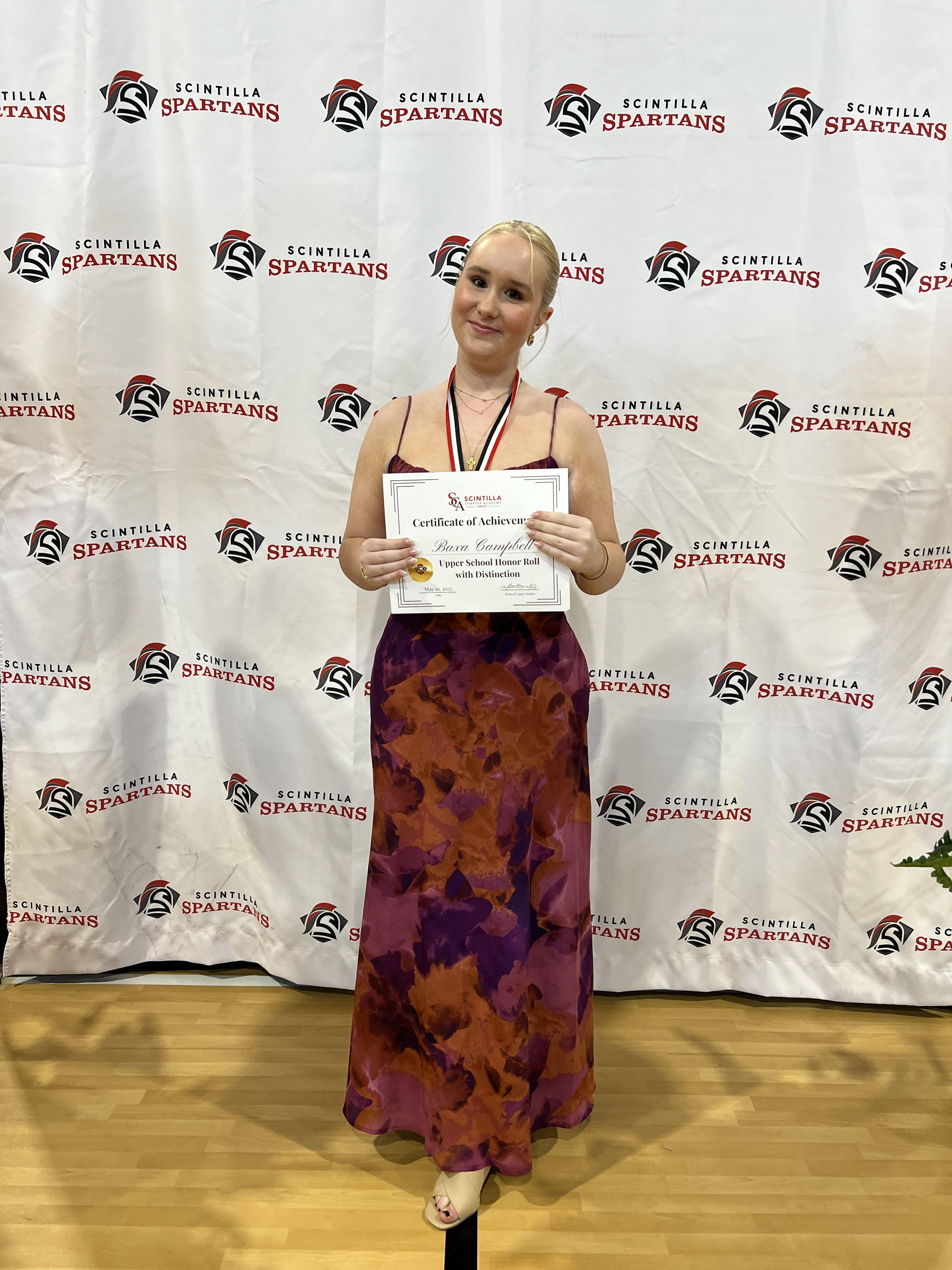Teacher Pay: Supplements, experience pay off for teachers
Published 4:00 am Sunday, November 18, 2018

- Teacher Pay: Supplements, experience pay off for teachers
VALDOSTA — Mitchell Donahoo doesn’t teach for the money but he has to make a living.
The sixth-grade Hahira Middle School teacher said things were more bleak for teachers several years ago before his teaching career began. Salaries were being cut, and some teachers lost their jobs.
Teacher pay emerged as a hot-button issue this year, topping platforms in Georgia and Florida midterm elections.
For Donahoo, teacher pay is not a political issue. It’s his livelihood.
“A lot of people don’t know that teacher pay has to do with the economy,” Donahoo said. “When the economy is doing well, that’s good for us.”
About seven years ago, he said, it was hard to be optimistic.
Still, the state of the economy did not deter Donahoo from pursuing his passion — a teaching career.
Since graduating from Valdosta State University, Donahoo has been with Lowndes County Schools for three years.
A teacher of Donahoo’s years of experience and degree level — a bachelor’s — is paid just a bit more than $35,000 a year.
Though Donahoo isn’t a fresh face to the halls of Hahira Middle, his salary falls closely to Georgia’s average starting teacher pay of $34,872, according to the National Education Association.
The starting salary is only higher than a few of its neighboring Southern states. Arkansas, Mississippi, South Carolina and West Virginia pay teachers a little less than or a little more than the Peach State. The state-to-state variation are within about $1,000 throughout the South. Georgia is also below the national average of $38,617.
Though Georgia lags behind several other states and the nation as a whole, Georgia’s teacher salary schedule has increased little by little since the end of the recession.
In some districts, it’s the local supplements added to teacher salaries that make the biggest impact.
For teachers in the SunLight Project region, which includes educators in Valdosta, Moultrie, Dalton, Milledgeville, Tifton, Live Oak and Thomasville, their salaries vary from district to district because of local funds.
How it Works
All teachers in Georgia are paid according to a state salary schedule.
That pay scale is based on two components: years of creditable service and level of certification.
Wes Taylor, Lowndes County Schools superintendent, said because public school districts are locally, state and federally funded, there is only so much school systems can do to change teacher salaries.
“It’s not arbitrary,” Taylor said. “It’s based on responsibility and years of experience, and there’s a basis for every employee.”
According to the 2018 salary schedule, a certified staff member — a credentialed employee such as teachers and administrators — could earn anywhere from $34,092-$73,980.
This is broken down into 14 sections for years of experience: 0-2, 3, 4, 5, 6, 7, 8, 9-10, 11-12, 13-14, 15-16, 17-18, 19-20 and 21-plus years. The salary schedule is further broken down by type of degree: bachelor’s (T4), master’s (T5), specialist (T6) and doctorate (T7).
Though this serves as a starting point to determine certified staff salaries in education, it isn’t usually the exact salary number they’ll see in their employment contract, thanks to local supplements.
“(Local supplements) are local money, so those amounts vary from district to district,” Taylor said.
For Lowndes County Schools, the local professional supplement schedule is given out based on years of experience: 1-3 is an additional $1,000, 4-8 is $1,800, 9-13 is $2,100, 14-19 is $2,400 and 20-plus is $2,700.
Most Lowndes teachers have master’s degrees and have been educators for 21-plus years. That means those employees earn $61,681, and the average annual pay is $54,194.
A new teacher earns about $35,093, while someone with 21 or more years experience earns about $76,681.
Valdosta City Schools provides its certified staff supplements, but the structure is set up differently because again it’s the district’s choice how to hand out local money.
Just by being teachers for one year, employees get $880 added to their salaries. After one year, their supplement amount adjusts to $1,100, which is added to the state salary amount.
A fresh-out-of-college professional earns $34,972, whereas a veteran educator makes $76,180.
It increases to $1,320 for certified staff employed 4-9 years, $1,650 for 10-14 years, $2,090 for 15-19 years and $2,200 for 20-plus years.
The biggest chunk of the Valdosta City Schools staff are master’s degree level certified employees with 21-plus years under their belt. They earn $61,181.
Dr. Todd Cason, superintendent of Valdosta City Schools, said, compared to the three other districts where he has worked, he believes Valdosta salaries are competitive.
“What we want to do is recruit the best and brightest employees that we can for Valdosta City Schools,” Cason said. “We understand that every employee and every prospective employee wants to be compensated for their skill level.”
In the Baldwin County School District, Judi Battle, head of human resources, said certified teachers starting out with a bachelor’s degree receive a $34,320 salary.
Battle said teachers can make as much as $77,496 if they have a doctorate degree and 21 years of experience.
Principals, who are also considered certified staff, are paid similarly to teachers, Battle said. They receive a base rate plus more, dependent upon education and experience, but there is a supplement based on the grade level of the principal.
A principal of an elementary school gets an additional $8,500. Middle school principals get a supplement of $14,500, and high school principals receive $15,500 added to their annual salary.
“There’s two components to the base for a certified employee,” Battle said. “There’s the state plus the local supplement. You take wherever they fall based off their years of experience and their certification level then add on the principal supplement.”
Lowndes County and Valdosta City Schools have similar supplements added to administrator salaries, which is also structured by grade level: elementary, middle or high school.
Colquitt County Schools are similar to other SunLight school systems, said Brad Gregory, assistant superintendent of finance. The local supplements have a little bit more cushion too for those starting out.
A beginning teacher with a standard four-year degree is paid the state’s starting salary schedule amount plus a $1,400 local supplement, Gregory said. The salary only goes up with experience.
In Tift County Schools, added local supplements are fat, but a teacher has to put in the time to earn them.
Added to the state’s starting salary of $34,092 for those with bachelor’s degrees is $1,760, a supplement higher than most other school systems in the SunLight coverage area.
However, it isn’t until six years of employment when a certified staffer will see the next local supplement raise of $1,870. Additional raises come in the ninth year at $1,980 and then 12th year at $2,090.
Tift County Schools also calculates its supplement schedule based on degree level. Teachers with a master’s degree earn an additional $2,200 in their 12th year, a specialist earns $2,310 and a doctorate degree earns $2,420.
Stacey Beckham, the school system’s chief communication officer, said it especially pays to work at Tift County Schools because of the retirement and the system pays into Social Security — a rarity among neighboring school systems.
“For a new teacher, their take-home pay would be less here than in a neighboring county, but then their retirement benefit will be huge,” Beckham said. “We’ll see better teachers come to us to teach for the last few years. That’s a huge thing to look at when comparing us to surrounding systems.”
She said since the school system is a charter system, it doesn’t have to follow the state salary scale but does anyway to keep it simple.
“We still think that’s a fair way to do it — to keep it consistent — so we still follow the state scale,” Beckham said.
Both Dalton Public Schools and Whitfield County Schools augment mandated state pay with local funds.
A teacher in Dalton Public Schools with a bachelor’s degree starts out at $37,428. After one year, that goes to $38,475. And after 10 years, goes to $45,856.
The pay scale used by Dalton Public Schools were developed in 2014. Before that, the system had a different scale for each position, said Theresa Perry, chief financial officer.
Perry said the scales were patterned after other systems in the Metro Atlanta Regional Education Service Agency.
“The RESA in the Metro Atlanta does an annual survey of any district that wants to participate (in) their salary scales,” Perry said. “It looks at the days, different positions, work and the pay rates. They compile that data, and those systems that participate get that data.”
In Whitfield County Schools, a teacher with a bachelor’s degree would start at $36,506. At 10 years, that goes to $44,060.
Whitfield County Schools has several different salary schedules, with pay based on education and experience.
Superintendent Judy Gilreath said when setting pay for staff the school system tries to “remain competitive with neighboring school systems.”
All teachers and administrators are paid for their degree level and years of experience, said Dr. Laine Reichert, Thomasville City School System superintendent.
Supplements are added depending on duties assigned — administrative, department chair, academic/class sponsor or coaching.
The superintendent said teachers can move up on the salary schedule for years served until they reach a cap at 22 years and receive higher salaries for additional degrees in their area.
“The decisions on which salaries are included are determined by the district comprehensive needs assessment, as well as the resource allocation formula,” Reichert said. “The positions have to consist of job duties that are allowable under federal rules and must have a direct impact on student achievement and students with disabilities.”
In the Thomas County School System, salaries range from $35,511 per year for an entry-level teacher with a bachelor’s degree to $77,931 per year for a 30-year veteran teacher with a doctorate degree.
Dr. Lisa Williams, superintendent, said local supplements are broken down as most other school systems do it: by degree and years of experience.
A newly earned bachelor’s degree could pay $35,511. Thirty years later, that would increase to $54,796.
It pays to have a better degree and put in the time in the Thomas County Schools system: 30-year master’s degrees can earn $62,638, specialists can earn $70,457 and a doctorate pays $77,931.
School administrative salaries range from $83,678 for an assistant elementary school principal to $120,048 for the high school principal.
Williams said administrators typically get paid more because they work outside of the 190-day schedule that most other certified staff work, meaning they may work during most of summer and other breaks.
Annual evaluations also matter when it comes to pay, Williams said.
“Employees who receive a satisfactory annual evaluation may advance on the experience schedule,” Williams said. “Employees who do not receive satisfactory evaluations do not advance on the salary schedule. Each position is capped at the amount established in the salary schedule, plus supplements for additional duties.”
Florida is a bit different.
No Room to Grow
Florida has a better average starting pay of $37,405, according to the National Education Association.
But it doesn’t pay to stay a teacher in Florida.
According to NEA’s average salary listing for teachers, Florida ranks 45th in the nation compared to Georgia at 23rd. Its average teacher salary is $47,267 — just $10,000 more than its average starting pay.
That compares to $55,532 in Georgia. The only states worse than Florida’s average teacher pay are Mississippi, New Mexico, Oklahoma, South Dakota, Utah and West Virginia.
In Florida, teachers and social workers are paid based on the number of years of experience.
A first-year teacher in the Suwannee County School District with a bachelor’s degree receives $36,430, while a teacher with 23 years of experience is paid $56,980.
Teachers with advanced degrees receive supplements.
Teachers with a master’s degree add $2,310 to their salary. Teachers with a specialist degree add $2,835 to their salary. Teachers with a doctorate add $3,750 to their salary.
“Compensation for the instructional unit and non-instructional unit are collectively bargained with the union,” said Vickie Music DePratter, chief financial officer for the Suwannee County School District. “The board may approve adjustments for administrators and confidential personnel; however, the position our district has historically taken is that salary adjustments are made for the district as a whole and not given unilaterally to a group unless all groups receive them.”
In the Hamilton County School District, teachers with 0-2 steps on the district’s grandfathered schedule are paid a salary of $34,702. Teachers who have 20 steps on the schedule receive a $51,563 salary.
Much like the Suwannee County district, Hamilton County pays supplements for the advanced degrees: $2,500 for a master’s, $3,500 for a specialist and $4,000 for a doctorate.
Hamilton also pays a salary stability supplement of $2,606 to employees at Step 20 on the schedule as of June 30, 2014.
The Lafayette County School District, the smallest in the area with just 72 teachers, according to the Florida Department of Education, also pays the highest to a beginning teacher.
Teachers with 0-2 years of experience are paid $37,814 and the pay goes up annually from there to $56,513 for a teacher with 25 years of experience.
The district also pays a higher rate to those teachers with a master’s (an additional $2,200), specialist ($3,300 higher) and doctorate ($3,960 higher).
So Long, Austerity
When the Great Recession hit in the late 2000s, it affected the economy in several ways — teacher pay was no exception.
Georgia and the South were one of the hardest hit areas during the recession, and it affected school system pay. Georgia schools are mostly funded through state funds, and most of a district’s budget funds employees.
According to U.S. Census data, most of the SunLight school systems were affected in large ways due to the recession, including Lowndes County.
Both Lowndes County and Valdosta City Schools rely heavily on state funding — both more than 50 percent to be exact.
“In austere times, we weren’t the only ones to face cuts — we all got hit,” said Ken Overman, Lowndes assistant superintendent. “Over time, we’ve had to pass that along to our employees. We even had furlough days.”
Most school systems in Georgia used furlough days — unpaid days off. In some cases, it meant laying off staff to lower budgets.
“Whenever you have austerity cuts or you have an economic downturn, the only way districts can really save money is to begin to cut positions and programs,” Cason said. “Valdosta City Schools has been blessed that they have not cut staff, nor have they had to furlough in several years.”
The state even gave school systems a 2 percent salary increase to the certified staff salary schedule.
Baldwin County Schools increased the number of positions, said Byron Schueneman, Baldwin County Schools chief financial officer.
“Our budget has been increasing, and we’ve been adding additional positions,” Schueneman said. “The last three years that I’ve been part of the budgeting process we’ve netted additional positions each year.”
Some additions in recent years include regular classroom-teaching positions along with music and art teachers.
A year before the statewide 2 percent increase, Thomas County Schools gave a 2 percent raise through its local supplement scale in FY17.
The school system was also able to get rid of furlough days in FY16, returning teachers back to a normal school calendar year.
Williams said as funding has improved, the district is beginning to restore some of the positions that were cut.
The district is adding back teaching and instructional staff to reduce class sizes closer to pre-recession levels and to add back instructional support positions.
Along with not having furlough days in several years, Cason said Valdosta City Schools was able to give a one-time 3 percent increase during FY17.
“When the governor gave money back to districts to give teachers pay raises, we chose to give a one-time 3 percent increase with a minimum of $500,” Cason said. “All employees received at least $500 on that one-time 3 percent increase, both certified and classified.”
The school system also increased its local supplements by 2 percent for FY18. Cason said the district made the move to recruit and retain great teachers.
Lowndes County Schools gave the same raises for the same school years.
Because austerity cuts were reduced for the first time in years, Overman said it allowed a one-time 3 percent raise in the 2016-17 school year.
The school system also passed out a 2 percent raise to local supplements — twice in two consecutive years — for the 2017-18 and 2018-19 school years.
“We’ve tried to reinvest that into our people,” Taylor said. “Then we have begun to restore positions as we had to cut multiple positions during those austere times when money was tight. We’ve now restored those positions which helps reduce class size.”
Feeling Optimistic
Newlywed and first-time home buyer Mitchell Donahoo said the consecutive raises in his early teaching career have made him optimistic.
He said he rarely has to purchase supplies for his classroom.
He said it all makes it easier for him to continue his education to attain his goal of one day being a principal.
“I’ve seen an increase in raises in the full three years that I’ve been in education,” Donahoo said. “I think the state of Georgia is doing a much better job economically the past few years, and that’s what helps us. So things are looking up.”
In addition to Katelyn Umholtz, SunLight Project team members Eve Copeland, Patti Dozier, Gil Pound, MarKeith Cromartie, Jessie R. Box and Charles Oliver contributed to this article.
Katelyn Umholtz is a reporter with the Valdosta Daily Times. She can be contacted at (229)244-3400 ext. 1256.





